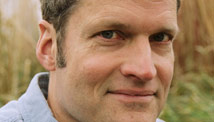July 12th, 2012
My Take: Dalai Lama should condemn Tibetan self-immolations
 Editor's Note: Stephen Prothero, a Boston University religion scholar and author of "The American Bible: How Our Words Unite, Divide, and Define a Nation," is a regular CNN Belief Blog contributor.
Editor's Note: Stephen Prothero, a Boston University religion scholar and author of "The American Bible: How Our Words Unite, Divide, and Define a Nation," is a regular CNN Belief Blog contributor.By Stephen Prothero, Special to CNN
When the Vietnamese monk Thich Quang Duc immolated himself in Saigon in 1963 to protest the persecution of Buddhists by the South Vietnamese government of Ngo Dinh Diem, the world took notice. Malcolm Browne’s photograph of the monk becoming a martyr won the Pulitzer Prize, and Diem's Roman Catholic regime fell before the year’s end.
Today, Tibet is witnessing an epidemic of self-immolations. In fact, since March 16, 2011, more than 40 Tibetans have followed Thich Quang Duc’s lead, setting themselves on fire to protest the Chinese occupation of Tibet.
Westerners react with revulsion to sati, the Hindu practice of widow-burning outlawed by the British in 1829, and of course to Islamist suicide bombers. The New Atheists are right to protest all this killing in the name of God (or the Buddha) – the way believers both prompt violence and justify it in the name of some higher good.
So where are the protests against these Tibetan protesters?
When asked about the recent spate of self-immolations in Tibet, the Dalai Lama has offered the response of no response. In a July 9 interview, the spiritual leader of the Tibetan people said he wanted “to remain neutral,” telling The Hindu:
This is a very, very delicate political issue. Now, the reality is that if I say something positive, then the Chinese immediately blame me. If I say something negative, then the family members of those people feel very sad. They sacrificed their own life. It is not easy. So I do not want to create some kind of impression that this is wrong. So the best thing is to remain neutral.
I know it is impolitic to criticize the Dalai Lama, a Nobel Peace Prize winner who is revered as a bodhisattva by many Buddhists. But he deserves criticism in this case. Why not "create some kind of impression" that killing is wrong? Why not use his vast storehouse of moral and spiritual capital to denounce this ritual of human sacrifice?
If the Dalai Lama were to speak out unequivocally against these deaths, they would surely stop. So in a very real sense, their blood is on his hands. But the bad karma the Dalai Lama is accruing here extends far beyond Tibet and these particular protesters.
In an important article on suicide in the Boston Globe, Jennifer Michael Hecht has noted that suicides beget suicides. “One of the best predictors of suicide is knowing a suicide,” she writes. “That means that every suicide may be a delayed homicide.”
And so it goes with self-immolations. The suicide by fire of Tunisian street vendor Mohamed Bouazizi is widely seen as a key catalyst of the Tunisian revolution and the wider Arab Spring. Less well known is the fact that over a hundred Tunisians later set themselves on fire in copycat incidents.
I understand that there is a tradition of self-immolation in Buddhism dating back at least to the fourth century. But there is also a strong ethic of compassion. So where is the compassion here?
The Dalai Lama isn’t just a Nobel Peace Prize winner. He is also a man of peace. It is time in this crisis that he started to act like one.
The opinions expressed in this commentary are solely those of Stephen Prothero.
No comments:
Post a Comment